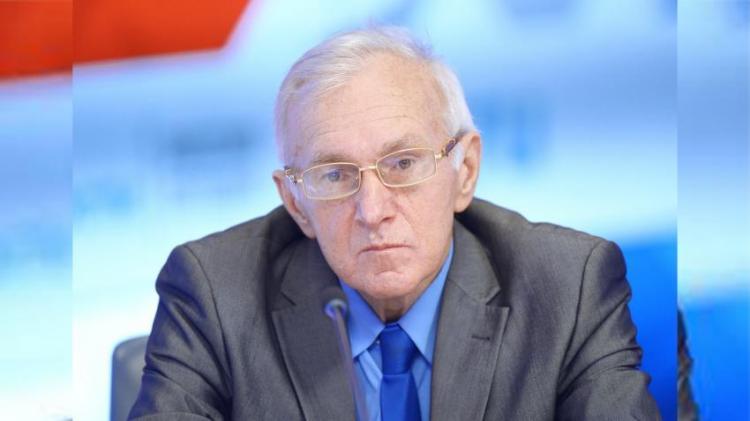Russian analyst: Moscow supports Kurds rights within the unity and sovereignty of Syrian territory
Moscow – Fahim Al-Sorani
“Moscow supports the rights of the Kurdish people in Syria within the unity and sovereignty of Syrian territories”, said Boris Dolgov, senior researcher at the Oriental Academy of the Russian Academy of Sciences.
In an interview with North-Press, Doglov said that the Kremlin supports the Kurds’ demands to expand their rights, maintain and practice their language and national culture, and have a form of local administration within the framework of a unified Syrian state.
The Russian analyst continued that the Syrian government emphasizes that the Kurds are an integral part of the Syrian people, and their rights must be safeguarded and guaranteed, as an essential part of the Syrian social fabric.
American trap
Doglov warned of the consequences of being driven by what he called “The US attempts that aim to invest in the Kurdish factor in Syria, by encouraging the Kurds to take unilateral moves that could endanger the integrity of Syrian territories.”
In this context, he recalled the attempt of Iraqi Kurdistan Region to secede from the center through a unilateral referendum, the matter that led Baghdad government to thwart it with all its might, and in return, Washington did not do anything at all to support the demands of those who want the secession, although it encouraged them before that.
Main partner
The Russian expert considered that the Kurdish armed formations in Syria played an important role in the fight against the Islamic State (ISIS), but attempts to form an “independent state” may ignite complex and long-term conflicts, as evidenced by the facts of history, when the collapse of The Soviet Union led to the outbreak of national and ethnic wars, as is currently happening in Ukraine and earlier in Chechnya and other regions as a direct result of the collapse of The Soviet Union.
Integrity of Syrian territories
However, he stressed on the necessity to resolve the Kurdish matter within the integrity of Syrian territories in coordination and cooperation with the central government in Damascus, pointing out that the Kurdish social fabric, and in terms of trends and currents, is diverse including those who support President Bashar Al-Assad, as (Communists and leftists), opposite to other Kurdish currents supporting the Syrian opposition, some of those are part of the National Coalition and other opposition parties, ranging from forces calling for dialogue with the Syrian state and others demanding the right of self-determination leading to the establishment of an independent state, referring to the lack of a single position of the Kurds in Syria about the future of the Syrian crisis and the principles of its solution.
The Russian expert pointed out that Washington’s support for the Kurdish nationalist movement aims at the division of Syria, because it’s Washington’s interest to weaken Syria as a united state in front of the allies of the White House in the region.
The final statement of Astana 13 reported that the guarantor countries discussed the developments in northeastern Syria and declared their refusal of “any attempts to create new facts on the ground, including illegal projects to declare an autonomy under the pretext of combating terrorism.”
The three countries expressed their determination to “confront separatist plans that aim to undermine the Syrian sovereignty and its territorial integrity and harm the national security of neighboring countries.”
Two days after the Turkish operation in Afrin, which began on January 20, 2018, “Dmitry Peskov” Kremlin spokesman said that Russian officials were in contact with the Turkish leadership regarding the military operation carried out by Ankara against People’s Protection Units (YPG) in Afrin region in northwestern Syria.
At a press conference by telephone, Peskov declined to comment on whether Moscow was aware of the operation in advance or not, he mentioned that Russia still believes in the importance of the territorial integrity of Syria.

